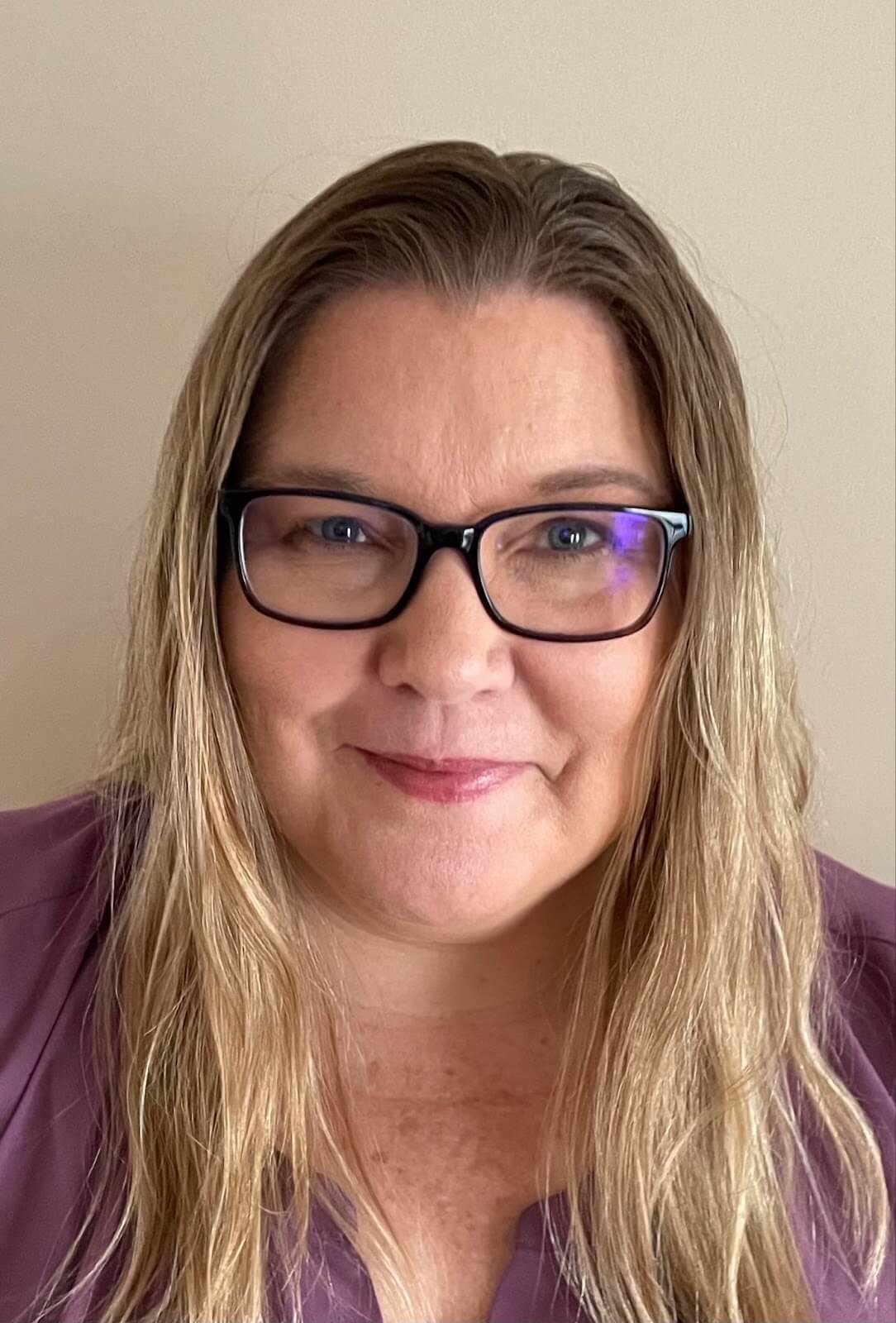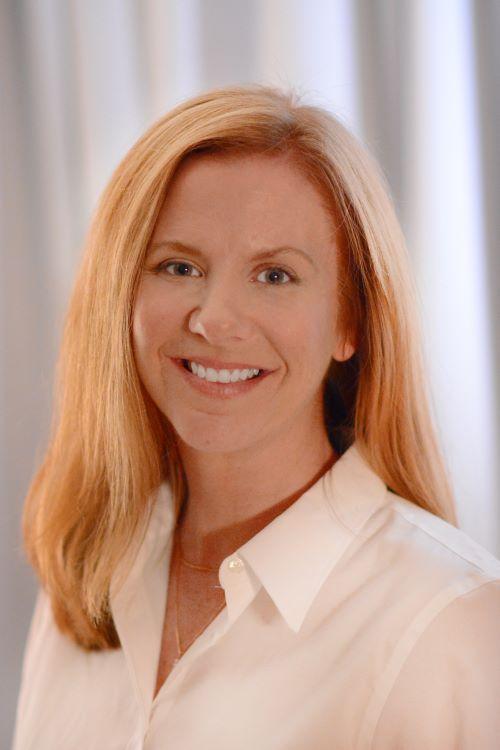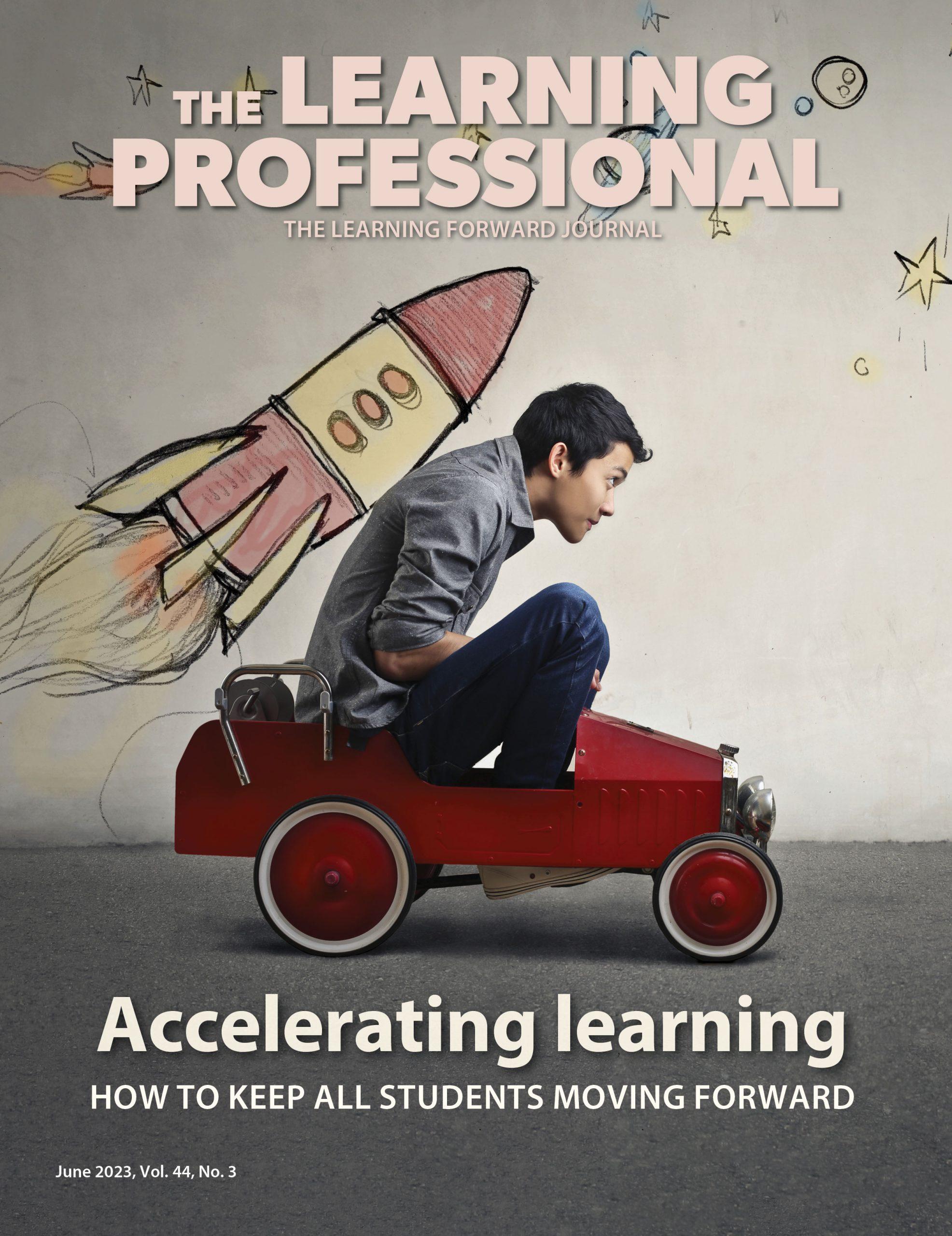FOCUS
Delaware sets a vision for professional learning
By Kathy Kelly, Nicole Marshall and Amy Baker-Sheridan
Categories: Instructional materials/curriculum, Learning designs, Standards for Professional Learning, System leadershipJune 2022
State education leaders and entities play vital, if not always highly visible, roles in establishing high-quality professional learning. Through legislation and regulations, resource allocation, leadership support, and more, they establish a vision of professional learning and support its implementation in districts and schools. In particular, state education agencies have the reach and leverage to foster a comprehensive, sustained system of professional learning for all educators. But creating that coherence is a complex undertaking.
At the Delaware Department of Education, we navigate this complexity by grounding our work in Standards for Professional Learning. The standards have helped us understand how to implement meaningful learning processes and foster the conditions necessary for learning to thrive.
Most recently, they have supported shifting our state’s definition of high-quality professional learning to be content-specific and curriculum-focused. As our work evolves to reflect changes in the field, the evolution of the standards is instrumental in developing the knowledge and credibility to change our policies and practices so that every educator can help every student succeed.
Adopting the Standards
Standards for Professional Learning have been an official part of education policy in Delaware since 2012, when they were incorporated into regulation 1598 of the state administrative code and thereby adopted as the state’s professional learning standards. It is written into the regulations that Learning Forward’s standards “shall serve as the foundation for professional development for all Delaware educators, and as indicators that guide the learning, facilitation, implementation, and evaluation of professional learning. The standards make explicit that the purpose of professional development is for educators to develop the knowledge, skills, practices, and dispositions they need to help students perform at higher levels” (State of Delaware, n.d.).
One of the benefits of adopting the standards is the way they have helped us build a coherent approach to professional learning across the state and across levels of the system. As we shift and improve our professional learning practices, it is crucial to have leadership involvement from up and down the organizational spine of our system.
Professional learning takes place via teams engaged in cycles of continuous learning, driven by student, educator, and system data, and there must be intentional alignment among educators and their teams to keep everyone moving in the same direction toward progress. The removal or exclusion of a section of the team’s vertical organization significantly impedes deep implementation.
The standards-aligned tools also bring value to our system as we move toward higher expectations of educator learning coupled with coaching and other forms of workplace support for implementation. For example, our recent shifts ask educators to assume some new roles in professional learning, and the Innovation Configuration maps, which spell out role-specific actions educators can take to implement each standard (see this issue’s tool on p. 69), help us articulate these new roles and provide a clear vision forward for each one. They also serve to identify gaps in the system that could derail the learning efforts.
Shifting to curriculum reform
In 2021, we became aware that Learning Forward was in the process of revising the standards, just as we were embarking on our own shifts in professional learning. Because we were used to seeing and leveraging alignment among our work, the standards, and current knowledge about research and best practice, we were not surprised to discover that we were moving in the same direction as the new standards, especially in recognizing the importance of content-specific, curriculum-focused professional learning.
We and our colleagues at the state Department of Education had begun a deep dive into curricular reform. Drawing on recent research, we recognized that ensuring equitable access to rigorous learning for every student required universal access to vetted, high-quality curricular materials aligned to student learning standards. We also recognized that implementing such curricula effectively required that educators’ professional learning be grounded in that high-quality content and materials.
We soon learned that this shift was in direct alignment with the draft of Learning Forward’s revised standards. As the Curriculum, Assessment, and Instruction standard became solidified, it provided reassurance that we were on the right track. It also provided credibility for our work, as we shared our evolving professional learning definition and plans with our colleagues in the state Department of Education and in local entities throughout Delaware.
When we invited Learning Forward representatives to speak at our annual professional learning summit in spring 2021, we were able to introduce the revised standards and the accompanying rationale to district and school leaders from across the state.
During this time, our leaders were in the process of developing their own professional learning plans for the upcoming school year. These new standards provided a practical scaffolding tool to reframe the building of their plans with the adjusted considerations of content, conditions, and processes.
As we have put this shift toward curriculum-based professional learning into practice, it has taken teachers some time to adjust. Some teachers say, “I thought you were just going to train me on how to use the materials” and express some resistance to the work involved in going deeper with the content.
But as they look at student work and engage in the collaborative learning structures, they find themselves understanding the content in a more in-depth way and developing a deeper relationship with the curriculum than they had previously. They say, “Oh, you’re teaching me how to be a better English teacher!” They’re finding at the end of it that they have learned more and improved more than they expected.
Putting the focus on teachers
Another shift we have made, informed by the standards, is making teachers the subject of the goal statements in professional learning planning. In the past, educators typically wrote these plans with student-focused goals like improvements in achievement. Although student learning is, of course, the outcome we are ultimately targeting, teachers need to change their practice before we can see changes in student outcomes.
In the past, we would often see educators create professional learning plans with extensive and ambitious goals, and then become frustrated when they revisited their goals at the end of an inquiry cycle. The lag time between professional learning and student outcomes is often too long for teachers (and those who supervise them) to see whether professional learning is making an impact and, just as importantly, identify needed shifts.
We now encourage local education agencies to focus on goals related to teachers’ learning and growth and make inquiry cycles short and sweet so that they can assess what’s working quickly and make necessary changes. This emphasis is reflected in the standards, specifically in the Learning Designs and Culture of Collaborative Inquiry standards.
We have found this to be especially important during the pandemic because online and hybrid teaching required teachers to learn so many new skills. This new context required a nimbleness in processes to meet the ever-evolving instructional demands. With shorter, teacher-focused inquiry cycles, local education agencies were able to quickly recognize what their educators weren’t yet able to do or understand and adjust accordingly.
Committing to ongoing inquiry
One of the most important ways the standards have shaped professional learning in Delaware is by facilitating the development of an ongoing inquiry cycle mentality. Ongoing engagement with the standards has helped everyone from administrators to content specialists to coaches recognize that professional learning must be more than workshops; it must be a sustained process of identifying needs, engaging in learning that addresses those needs, assessing progress, and making adaptations as needed. At the state level, we have encouraged these shifts through our planning, grant-making (see box below), assessments, coaching processes, and more.
For example, the inquiry mindset has been helpful in building a statewide content leader program for English language arts and mathematics over the past two years. In these programs, we facilitate three or four content-specific inquiry cycles with selected coaches and teacher leaders from different local education agencies around the state.
Inquiry questions in these cycles help coaches go into depth about teaching and learning strategies. For example, “How does building knowledge and appropriate scaffolding support students in effectively communicating ideas through writing?” While engaging in these inquiry cycles, these content leaders also practice using observation tools and protocols for examining student work, developing action plans, and identifying continued problems of practice. The goal is to provide every local education agency with at least one content leader equipped to lead this work at the classroom or professional learning community level.
As our efforts to build a robust professional learning system across the state continue to evolve, Standards for Professional Learning will continue to play a vital role. In the spirit of inquiry, we will continue to dive deep into the standards and develop our understanding at the state level so that we can support educators at other levels to apply them and implement high-quality professional learning.
Download pdf here.
Case study: Delaware's reimagining professional learning grants
Using federal School Improvement funds, the Delaware Department of Education allocates Reimagining Professional Learning innovation grants, which support the work of districts and schools to improve the quality and efficacy of professional learning for educators.
When the grant program was established in 2016, the primary goal was to provide financial incentives to districts and schools to implement professional learning grounded in Learning Forward’s Standards for Professional Learning and the Common Core State Standards.
In 2021, we began honing the grants’ focus to support the adoption and implementation of high-quality curriculum and instructional materials — a shift that is closely aligned with the addition of the Curriculum, Instruction, and Assessment standard in the 2022 revision of Standards for Professional Learning. This shift in the grants is one of the ways we are encouraging local education agencies to move away from cookie-cutter professional learning toward content-specific learning that builds the capacity of every teacher, school administrator, and district administrator.
Local education agencies that wished to apply for the grant submitted a professional learning plan, with training and support from our staff and using a template and reflection questions developed by our office that include prompts for a needs assessment and evaluation strategy. Grantees are expected to engage in a continuous improvement process that includes collaborative learning throughout the grant cycle.
In addition to hosting an annual professional learning summit during the launch of the grant cycle, we provide technical and consultive support during the drafting of the professional learning plans. Each grant awardee is assigned a liaison who meets with the local education agency at prescheduled times throughout the year to review progress, consider evidence, and act as a thought partner for midcourse adjustments.
The projects we funded for the 2021-22 school year include professional learning plans grounded in specific curricular resources that strategically attend to educator training, collaborative planning, and group and team coaching. Two examples of professional learning goals include educators using effective scaffolding to support all learners in accessing grade-level text in English language arts and strategically planning for and implementing National Council of Teachers of Mathematics’ effective mathematics teaching practices in their lessons on a daily basis in mathematics.
As a result of these and other grant projects over the past few years, we have observed a faster, more immediate impact on student outcomes in classroom work. We have also observed that the adjusted professional workflow and processes have grown across other content areas in the system, not just the content area that was awarded the grant. The most successful outcomes have occurred where there has been enduring change at the systems level.
Some of these systems and strategies are featured in a virtual tour of schools in the Brandywine school system made by the Knowledge Matters Campaign. You can view the virtual tour at www.youtube.com/watch?v=PbxHL68RLIk
Categories: Instructional materials/curriculum, Learning designs, Standards for Professional Learning, System leadership
Recent Issues
TAKING THE NEXT STEP
December 2023
Professional learning can open up new roles and challenges and help...
REACHING ALL LEARNERS
October 2023
Both special education and general education teachers need support to help...
THE TIME DILEMMA
August 2023
Prioritizing professional learning time is an investment in educators and...
ACCELERATING LEARNING
June 2023
Acceleration aims to ensure all students overcome learning gaps to do...














